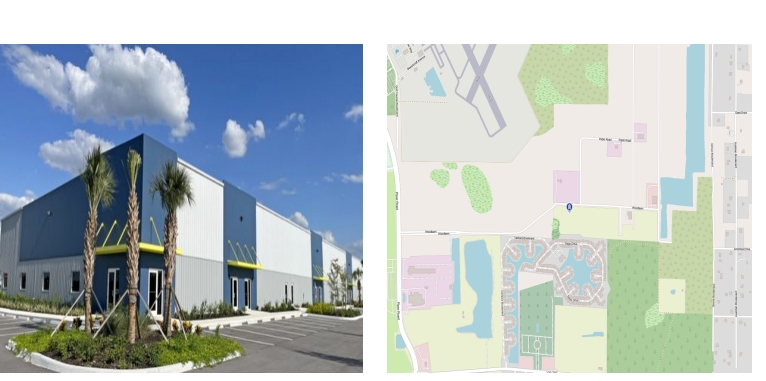How to Relocate a Business to Charlotte County, FL
April 1st, 2025
Thinking About Making a Move?
Relocating your business is a big decision. But what if I told you there’s a place that offers sunshine, a pro-business climate, modern infrastructure—and the perfect property to grow? That’s Charlotte County, Florida.
We’re not just talking theory here. This isn’t a “someday” spot. It’s a “right now” opportunity—especially when you check out this Featured Friday Property: see the listing. The location? Prime. The access? Unmatched. The timing? Couldn’t be better.
So how do you make the leap?
Here’s your step-by-step playbook.
Why Charlotte County? Let’s Talk Benefits
Before we jump into logistics, let’s answer the big question:
Why here?
Charlotte County checks the boxes:
- Strategic location between Tampa and Miami
- Access to Port Charlotte, Punta Gorda Airport, and major highways like I-75
- Competitive cost of doing business
- Supportive community and local government
- A skilled, growing workforce
And that’s just the beginning.
Step 1: Research the Market First
Start with some good old-fashioned digging.
Ask yourself:
- Who are your customers in this area?
- What’s the competition like?
- Are suppliers nearby?
Charlotte County Economic Development can help with site selection tools, workforce data, and relocation insights. You’re not flying blind—we’re here to guide you.
Step 2: Check Out the Right Property
Let’s spotlight this #CharlotteFLFeaturedFriday pick: Take a look at this prime commercial opportunity.
Located in the heart of Port Charlotte, this site offers:
- 7,628 sq ft of space
- Close proximity to US 41 & I75
- Strong retail visibility
- Room for custom build-out or redevelopment
It’s ideal for businesses ready to plant deep roots—and grow fast.
Step 3: Connect with Local Experts
Relocating isn’t just about buildings. It’s about people.
Charlotte County Economic Development has boots-on-the-ground pros (like our BRE Manager Mark Odell and our Business Recruitment Manager, Kristy Sisler) who help businesses:
- Navigate permitting
- Understand zoning
- Identify incentives (yes, even ones for veterans and manufacturers)
Our team’s job? Make your transition smooth.
Step 4: Build Your Relocation Timeline
Here’s where most business owners mess up—they rush.
Don’t.
Instead, create a phased plan:
- Phase 1: Discovery and property tours
- Phase 2: Budgeting and internal planning
- Phase 3: Purchase/lease negotiations
- Phase 4: Move-in, utilities, and setup
Give yourself 90–180 days, depending on your size.
Step 5: Notify Your Network
Once the wheels are in motion, keep your people in the loop.
- Update your customers via email and social media
- Change your Google Business Profile
- Let vendors and partners know
Good communication = loyal customers who follow you.
Step 6: Hire Locally (Here’s the Talent Secret)
Charlotte County has a solid talent pipeline thanks to partnerships with:
- Charlotte Technical College
- Florida Southwestern State College
- Veteran outreach and workforce boards
Need warehouse staff, medical techs, or office support? We’ve got you.
Step 7: Update Legal, Licenses, and Tax Info
Yes, paperwork. (Ugh.)
But it’s essential. Don’t forget to:
- Register your business with SunBiz
- Get a Charlotte County business tax receipt
- Update your insurance policies
Need help? The Florida SBDC at FGCU is a fantastic resource.
Step 8: Move Efficiently
Plan your move like a military operation.
- Label everything
- Move in waves
- Use a local commercial mover
And hey, take advantage of off-season rates during summer!
Step 9: Launch Big (and Loud)
When you arrive—celebrate!
- Host a ribbon cutting
- Invite the Chamber of Commerce
- Use hashtags like #ChooseCharlotteFL and #Cleared4Takeoff to spread the word
Success loves visibility.
Step 10: Keep Growing
Relocation isn’t the end. It’s the beginning.
- Apply for growth grants
- Attend local mixers
- Join boards or mentorship programs
Here, we don’t just welcome you—we help you scale.
Local Success Story: Why Businesses Are Moving Here
Take Bloom Academy, Integrity Employee Leasing, or any number of businesses in our 40 Under 40 spotlight series. They came for the infrastructure—but stayed for the community.
How Site Selection Support Helps You
Charlotte County Economic Development offers free site selection services. That means:
- Personalized property lists
- Workforce data
- Infrastructure access info
- Introductions to local partners
You’re not alone in this. And the Featured Friday Property? It’s ready for you.
The Business Climate You’ve Been Waiting For
No corporate income tax on limited partnerships. No inventory tax. And a county government that listens.
You can’t buy that kind of support—but in Charlotte County, it comes standard.
FAQs
Is Charlotte County good for small businesses?
Absolutely. With local support, workforce pipelines, and affordable space, it’s perfect for entrepreneurs.
How long does it take to relocate a business?
Most moves take 3–6 months. Planning ahead speeds things up.
Can Charlotte County help me find employees?
Yes! Our workforce programs connect businesses to talent fast.
What industries thrive in Charlotte County?
Healthcare, logistics, advanced manufacturing, and construction are booming.
Is financial help available for relocations?
While we don’t focus on tax incentives, we do offer support with permitting, licensing, and site selection.
What’s the best way to get started?
Reach out to Charlotte County Economic Development at Cleared4Takeoff.com.
Conclusion: Ready to Call Charlotte County Home?
Relocating a business doesn’t have to be stressful. With the right team, a clear plan, and the right property—like our Featured Friday listing—it becomes a launchpad for your next chapter.
Charlotte County is open for business. And we’d love to welcome yours.
Sources:
- Cleared4Takeoff.com – Available Properties
- Florida SBDC at FGCU
- Charlotte County Chamber of Commerce
- PGD Airport
- Florida Department of State – SunBiz


